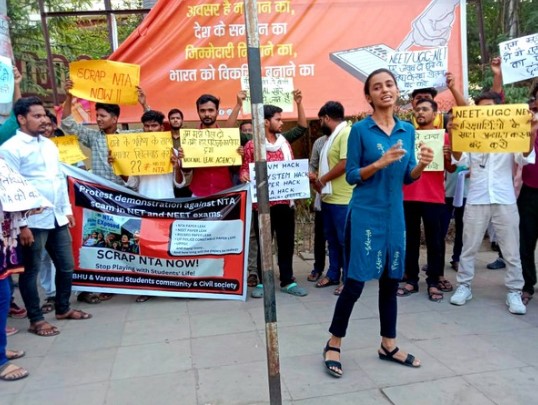Amidst significant controversy surrounding the NEET and UGC-NET exams, the Public Examinations (Prevention of Unfair Means) Act, 2024, came into effect on Friday. This law aims to prevent cheating and unfair practices in public examinations and entrance tests nationwide.
The Personnel, Public Grievances, and Pensions Ministry issued a notification stating, “In exercise of the powers conferred by sub-section (2) of section 1 of the Public Examinations (Prevention of Unfair Means) Act, 2024 (1 of 2024), the Central Government hereby appoints the 21st day of June 2024, as the date on which the provisions of the said Act shall come into force.”
The Act was passed during the Budget session that concluded on February 10 and received President Droupadi Murmu’s assent on February 13. It seeks to enhance transparency, fairness, and credibility in public examinations by preventing unfair means.
Applicable to exams conducted by bodies like the Union Public Service Commission, Staff Selection Commission, Railway Recruitment Board, National Testing Agency, and other Central overnment departments, the Act prohibits unauthorised disclosure of confidential exam information and unauthorised entry into exam centres. Offences under the Act are punishable by three to five years of imprisonment and fines up to Rs 10 lakh, with all offences being cognisable, non-bailable, and non-compoundable.
The NEET-UG 2024 exam, held on May 5, had its results declared on June 4, ahead of the scheduled announcement date of June 14. The National Testing Agency (NTA) reported to the Supreme Court on June 13 that scorecards of 1,563 candidates, who received “grace marks,” would be canceled. These candidates are offered the option to reappear for the exam on June 23 or forgo the compensatory marks.
This new law aims to restore trust and integrity in public examinations across the country amid ongoing debates about exam fairness.

















